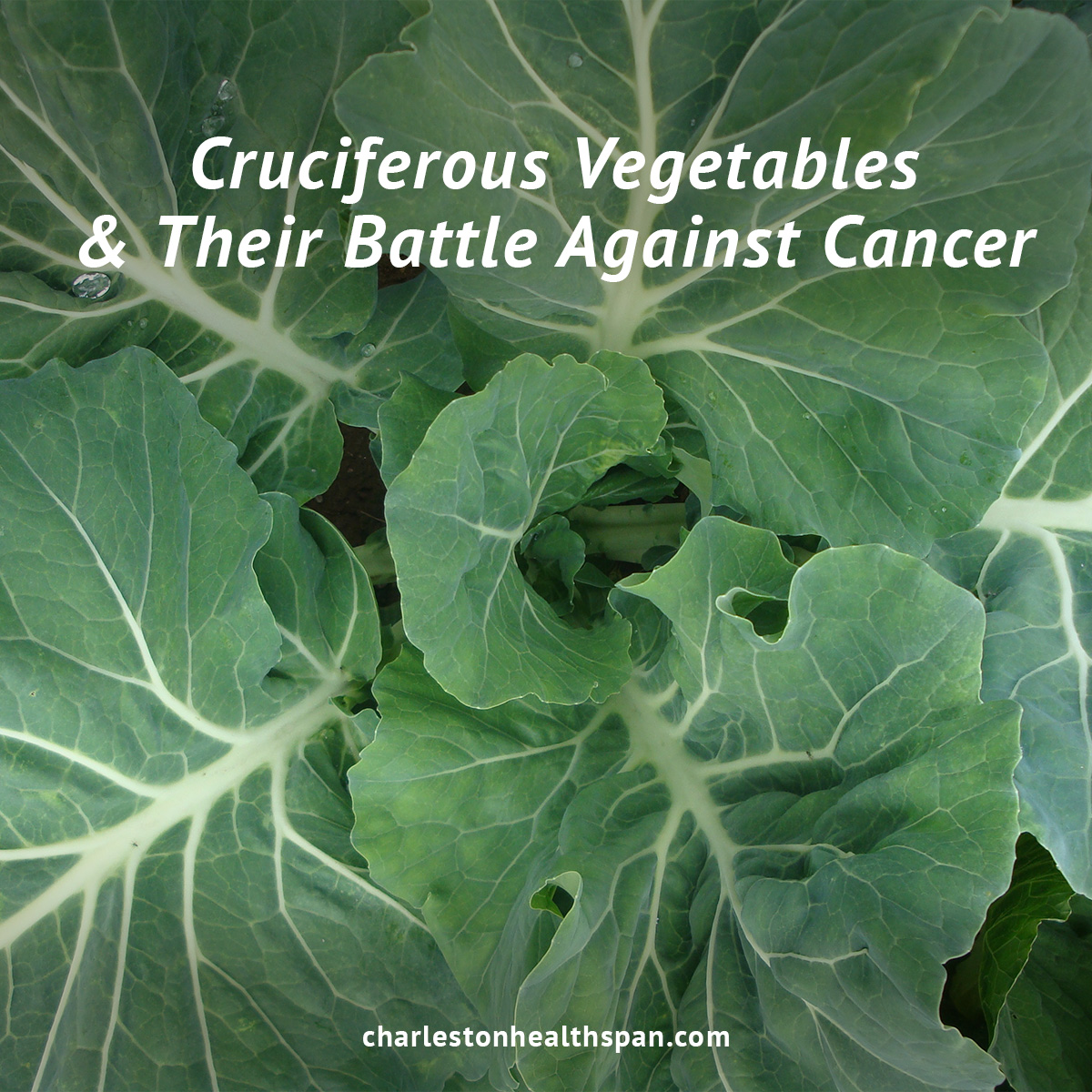
17 Apr Cruciferous Vegetables and Their Battle Against Cancer
The cruciferous (or Brassica) vegetables Broccoli, Kale, Collards, Brussel Sprouts, Cabbage and others all have some pretty powerful substances that clearly work in the battle against cancer. The term cruciferous is used because during growth, the four flowers petals of this species form a cross (cruciferous = cross bearing).
Cruciferous vegetables contain the substances Indole-3-Carbinol (I3C), Di-indolmethane (DIM) and many other powerful phytonutrients such as the glucosinolate, sulforaphane. Each of these compounds play a significant role in the metabolism of estrogen and also may influence cancer genes.
When estrogen is metabolized, it is broken down into 2-hydroxyestrone (good estrogen) and 4- and 16-hydroxyestrone (bad, cancer causing estrogen). Cruciferous vegetables modulate the estrogen metabolic pathway to direct the path to lead to the production of 2- and away from 4- and 16-. SImple as that. Nature’s little gift to help in the battle against cancer.
We live in a very estrogenic environment, as we are assaulted daily with xeno- (foreign) and phyto- (plant) estrogens, toxins that mimic estrogen and our own self created estrogen, as obesity increases the production of estrogen in both men and women. A common estrogen mimic is petroleum products such as plastic and Bisphenol-A.
A worthwhile test to consider is a 24 hour urine estrogen analysis to determine how you personally metabolize estrogen. This simple test can allow you to gauge your risk for the development of an estrogen mediated cancer. The steps taken to positively influence estrogen metabolism are primarily dietary. Inclusion of cruciferous vegetables is a good start but one my also wish to consider the addition of omega-3 fats, fiber, vitamins b6, b12 and folate, iodine and avoidance of pesticides as much as possible. Vitamin D supplementation is also a good idea for cancer prevention, though it may not directly alter estrogen metabolism.
If the question were to be asked, which is better to supplement with? The answer is DIM. DIM is less reactive, better absorbed and has a better safety profile than I3C. Of course a supplement is not mandatory as you could always include an abundance of cruciferous vegetables in your diet to harness the cancer fighting power these vegetables possess. Organic produce is best, as Kale and Collards are frequently noted to be sponges for pesticides and herbicides (sorry to be a downer, just trying to keep you safe).

Sorry, the comment form is closed at this time.